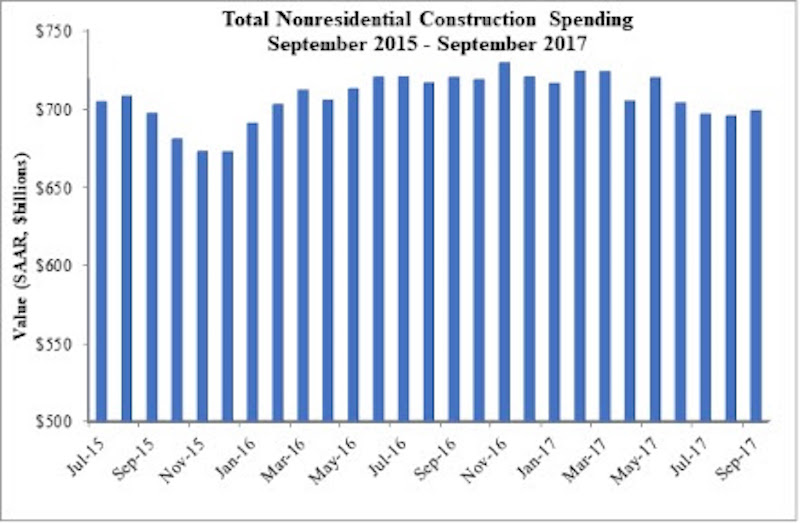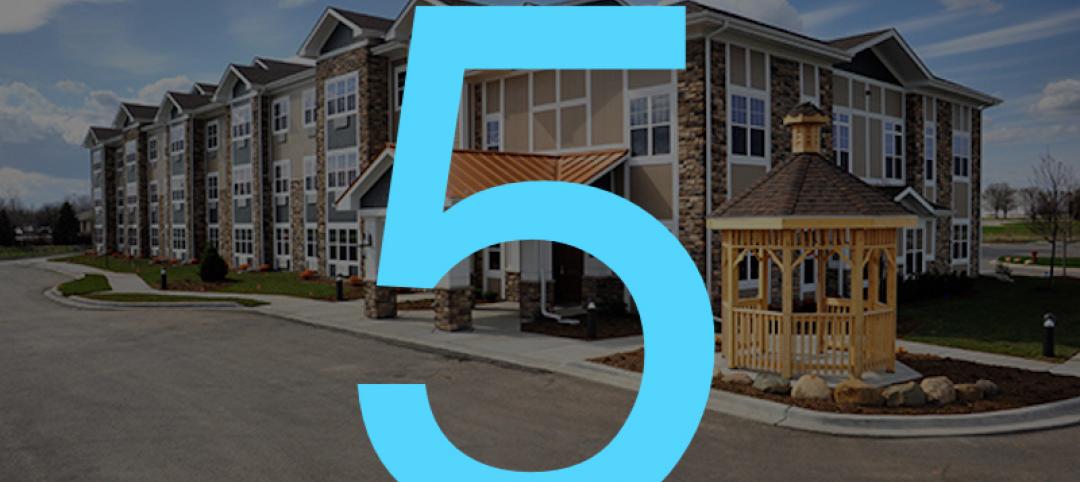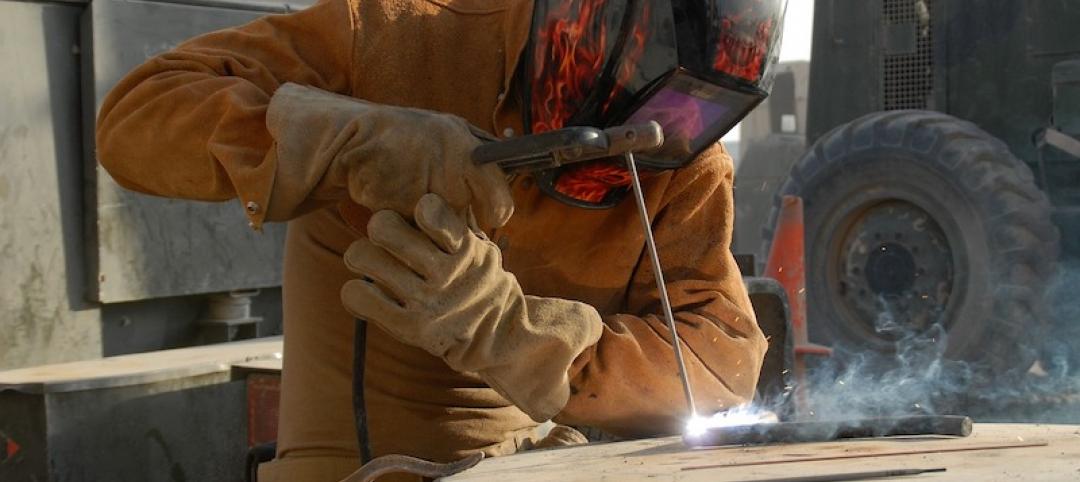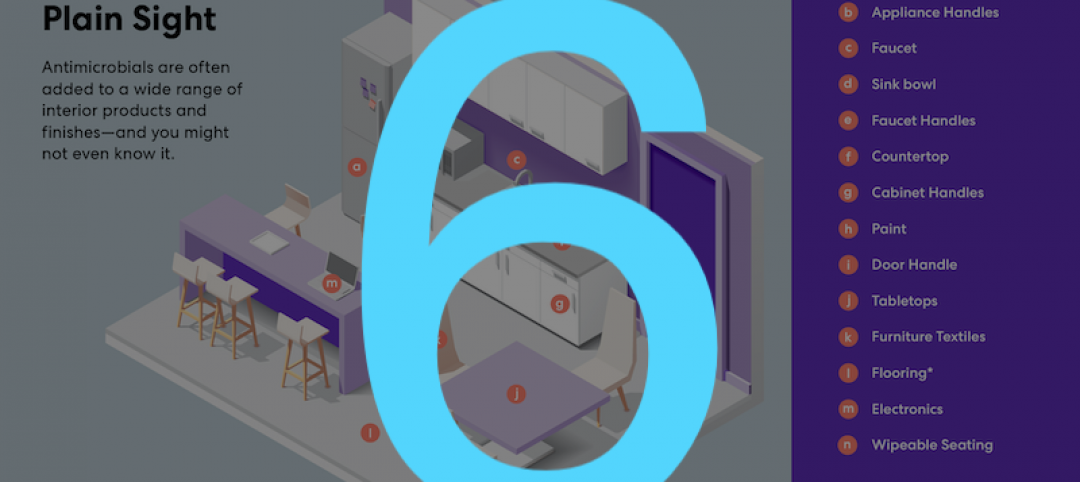Nonresidential construction spending rose 0.5% in September, totaling $698.1 billion on a seasonally adjusted basis, according to an Associated Builders and Contractors (ABC) analysis of data from the U.S. Census Bureau. However, nonresidential construction spending is down 2.9% on a year-over-year basis, with construction spending related to manufacturing down 20.3% since September 2016. August and July nonresidential spending totals were revised upwards by a collective $11 billion, however.
“There is a lot of positive news about the U.S. economy right now,” said ABC Chief Economist Anirban Basu. “The nation has added nearly 1.8 million net new jobs over the past year, the official unemployment rate stands at a 16-year low and asset prices have skyrocketed. Those factors have given American household wealth a boost. Despite all of that, nonresidential construction spending is down on a year-over-year basis by nearly 3%.
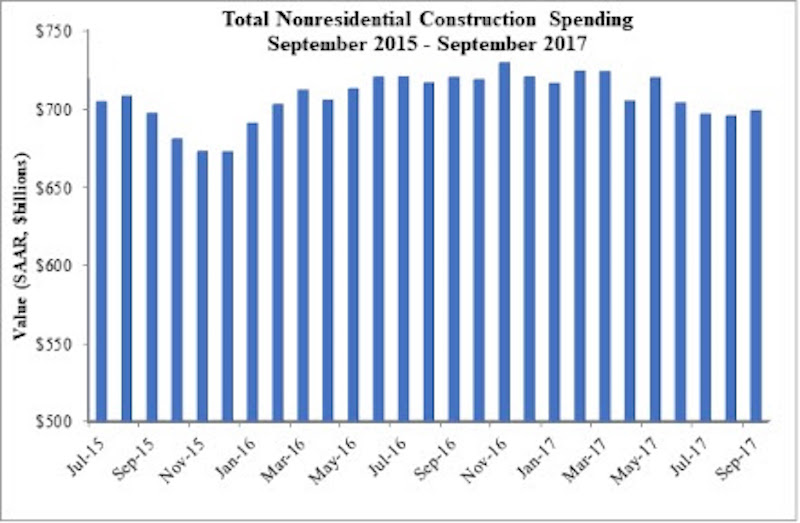
“Much of this is due to declining public spending in water supply and other public sector categories, but not all,” said Basu. “Key private segments like manufacturing and power have also experienced diminished construction activity. A likely partial explanation is the low commodity prices that characterized much of 2015 and 2016.
“At the same time, construction firms are boosting employment levels, with many firms reporting that the retirement of experienced workers is resulting in rapid hiring of other workers who are hopefully trainable, but who are not yet as productive on a one-for-one basis,” said Basu. “For many firms, this dynamic is likely squeezing profit margins. Many firms are also offering significant pay increases to their most talented workers to enhance retention and delay retirement.
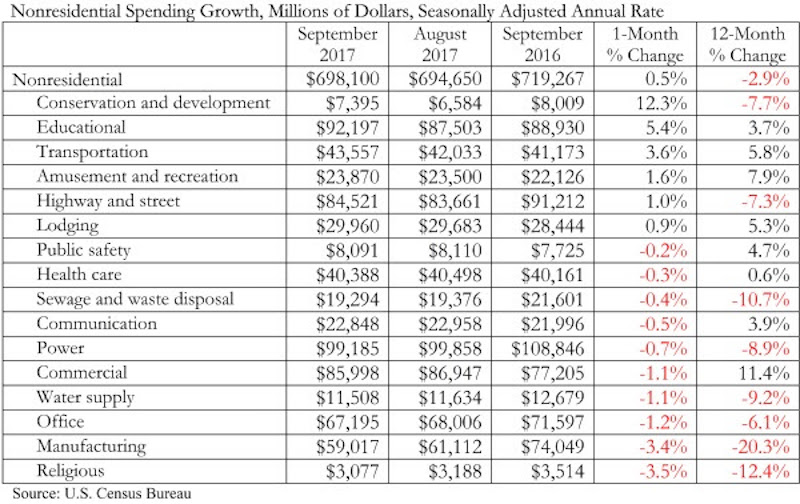
“All of this is consistent with the notion that proposed policy initiatives that would better support U.S. economic growth remain important even in the context of an improving economy,” said Basu. “Beyond the tax reform initiative currently in the spotlight, one hopes that an infrastructure-led stimulus package funded primarily by private investors receives more focus during the months to come.”
Related Stories
Market Data | Jun 11, 2020
5 must reads for the AEC industry today: June 11, 2020
Istanbul opens largest base-isolated hospital in the world and AIA issues tools for reducing risk of COVID-19 transmission in buildings.
Market Data | Jun 10, 2020
6 must reads for the AEC industry today: June 10, 2020
Singapore's newest residential district and CannonDesign unveils COVID Shield.
Market Data | Jun 9, 2020
ABC’s Construction Backlog Indicator inches higher in May; Contractor confidence continues to rebound
Nonresidential construction backlog is down 0.8 months compared to May 2019 and declined year over year in every industry.
Market Data | Jun 9, 2020
6 must reads for the AEC industry today: June 9, 2020
OSHA safety inspections fall 84% and the office isn't dead.
Market Data | Jun 8, 2020
Construction jobs rise by 464,000 jobs but remain 596,000 below recent peak
Gains in may reflect temporary support from paycheck protection program loans and easing of construction restrictions, but hobbled economy and tight state and local budgets risk future job losses.
Market Data | Jun 5, 2020
7 must reads for the AEC industry today: June 5, 2020
The world's first carbon-fiber reinforced concrete building and what will college be like in the fall?
Market Data | Jun 4, 2020
7 must reads for the AEC industry today: June 4, 2020
Construction unemployment declines in 326 of 358 metro areas and is the show over for AMC Theatres?
Market Data | Jun 3, 2020
Construction employment declines in 326 out of 358 metro areas in April
Association says new transportation proposal could help restore jobs.
Market Data | Jun 3, 2020
6 must reads for the AEC industry today: June 3, 2020
5 ways to improve cleanliness of public restrooms and office owners are in no hurry for tenants to return.
Market Data | Jun 2, 2020
Architects, health experts release strategies, tools for safely reopening buildings
AIA issues three new and enhanced tools for reducing risk of COVID-19 transmission in buildings.


